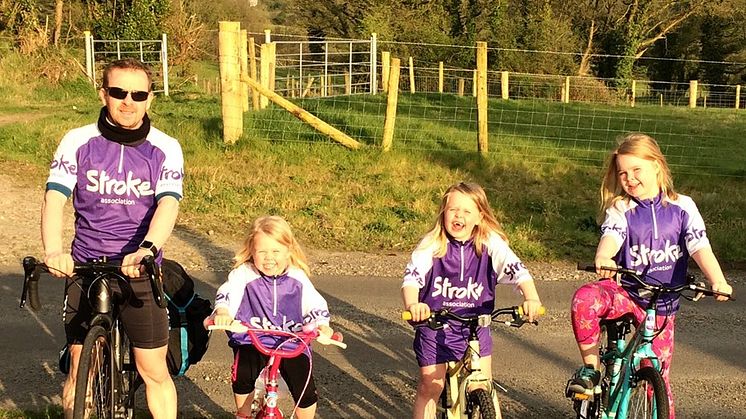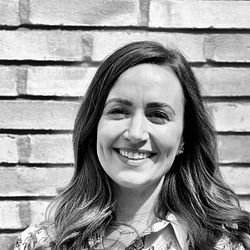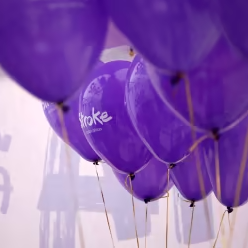
Press release -
Derry stroke survivor celebrates recovery with gruelling cycle challenge
A Derry stroke survivor is preparing to take on an 800km cycle challenge through France and Spain to celebrate 5 years since a devastating stroke almost took his life.
Dr Colin Gorman, 43, from Derry, is planning to tackle the gruelling Camino de Santiago route during May 2017, cycling from St Jean Pied de Port in South France, across the Pyrenees to the North of Spain. He is aiming to raise awareness of the impact of stroke, especially amongst younger people, and funds for the Stroke Association – the leading charity for people affected by stroke.
Dad of three Colin, had a stroke in May 2012. He collapsed at home, completely without warning, and was admitted to hospital. Doctors discovered Colin had experienced a rare form of stroke – a subarachnoid brain haemorrhage which was caused by bleed on the surface of the brain. Colin endured 4.5 hours of brain surgery as doctors tried to stop the bleeding.
Colin said: “This was a life changing moment which set into action a long chain of challenging and traumatic circumstances not only for me, but undoubtedly more so for those around me. I received fantastic medical treatment in the acute stage but on discharge, information, support and services were extremely limited. Nothing really prepares you for stroke. I had difficulty with my memory and concentration and I was exhausted all the time – sleeping for up to 20 hours a day on discharge from hospital. The fatigue has improved greatly since this time but continues to be one of the more persistent and frustrating symptoms of the stroke”.
Colin, who is a Clinical Psychologist and Lecturer at Ulster University, battled back from illness to continue his work at the Magee campus and is now focusing on new research into the impact of subarachnoid brain haemorrhage.
Colin says this life changing illness inspired him to overhaul his lifestyle and set himself the cycle challenge.
“Before my stroke, I had never been sick, but I worked at 100 miles an hour and rarely said no to anything. I had a busy career, working at the University, for the NHS and in private practice. We had our three young children and were moving house. It was hectic. Looking back I realised that maybe something had to give, and the physical impact of the brain haemorrhage means that in general I have to be a lot more pragmatic about life.
A milestone in my journey
“The recovery has been slow and frustrating but after around 3 ½ years when I recognised that my functional recovery had plateaued I realised that I wasn’t doing the basics of looking after myself. So, in December 2015 I decided I needed to set myself goals and targets and to take control of the factors that I could take control of. I started to eat better, do a bit more exercise and to take the rest that my body needed. Nine months later I completed the Derry Half Marathon and decided I wanted to do something big to celebrate life 5 years after my stroke. So, that’s when I decided to do the cycle – it’s a big personal challenge for me and will mark a real milestone in my journey”.
Colin will be joined on the cycle by his Ulster University colleague Dr John Mallettand they hope to complete the long cycle in just 10days. Colin says he hopes that by sharing his experience, more people will understand the impact of different types of stroke:
“I never expected to have a stroke. It was a total shock. Physically I’ve come a long way, but for many survivors stroke is an invisible and chronic illness. I still struggle with fatigue, problems with concentration and headaches. Sadly, there just isn’t enough support out there, especially for younger people who are struck down with this illness, when they least expect it. I think there needs to be a much more joined up approach to providing physical and psychological support for individuals and families who have been affected by stroke.. I feel very lucky to be here and just want to do my bit to help”.
Barry Macaulay, Director of Stroke Association, added: “As a keen cyclist myself I really admire Colin for taking on this tough challenge. It certainly won’t be easy but it is a fantastic way to celebrate life after stroke. Sadly, every year more than 4000 people in Northern Ireland will have a stroke. Thanks to supporters like Colin, the Stroke Association can provide vital support and services to help them make the best recovery possible. We’re really grateful to Colin and wish him every success with the cycle”.
Colin is collecting donations via Just Giving: https://www.justgiving.com/fundraising/Colin-Gorman-Camino2017.
When you give to the Stroke Association in Northern Ireland, you can be sure your donation will help people affected by stroke near you, funding vital Life After Stroke Services in Northern Ireland.
The Stroke Association provides speech and language therapy and communication support services across Northern Ireland as well as family support and Life After Stroke grants via the Stroke Recovery Service. For more information about services in your area contact the Northern Ireland team on 028 9050 8020 or email ni@stroke.org.uk
Topics
Regions











